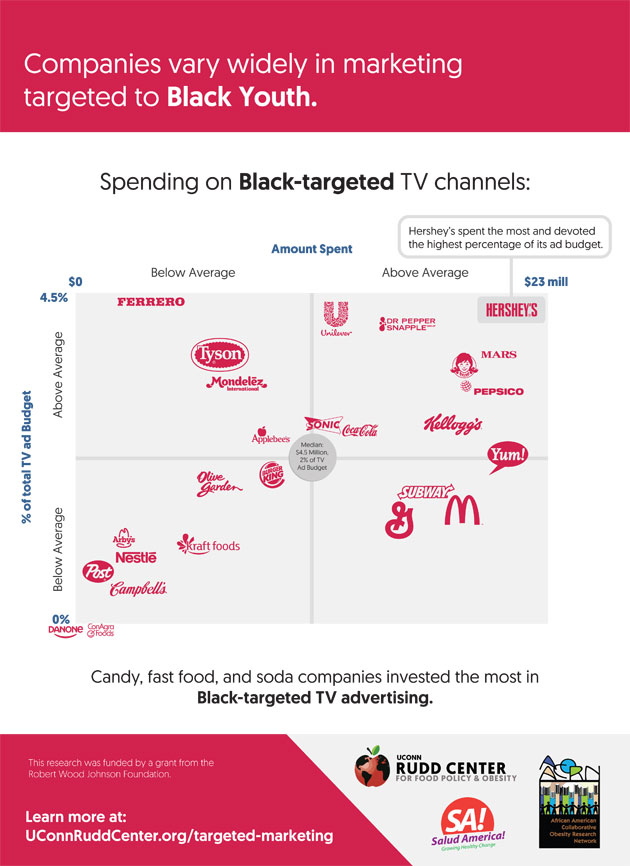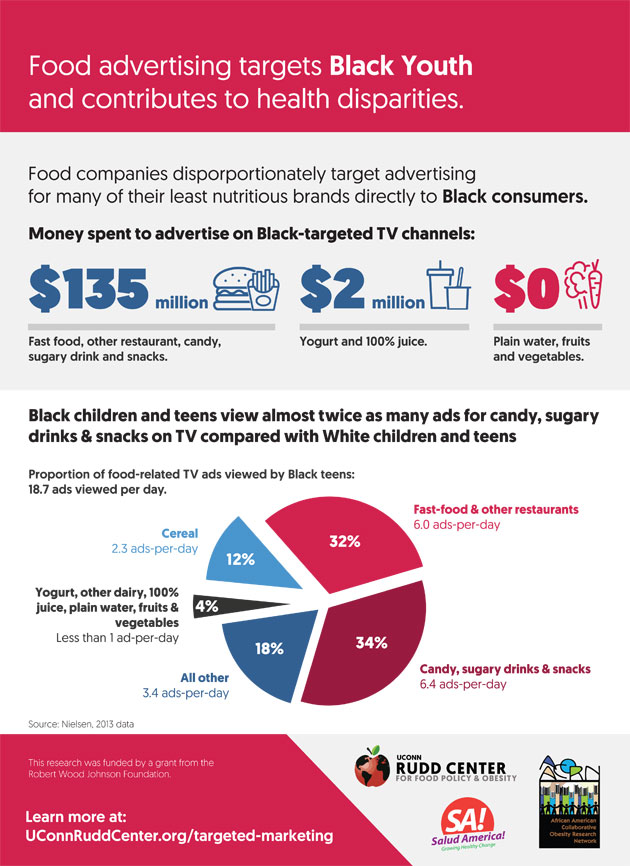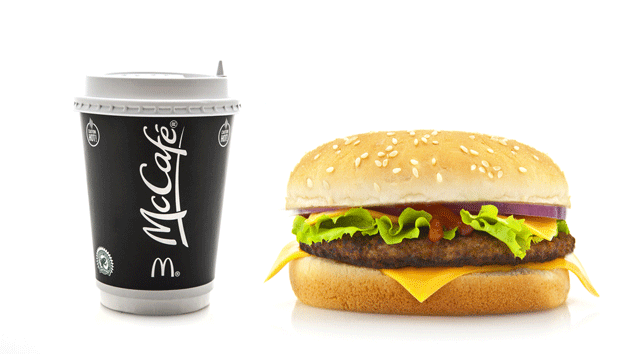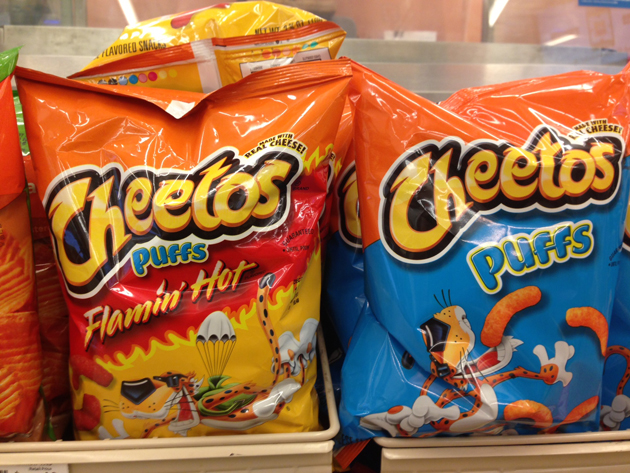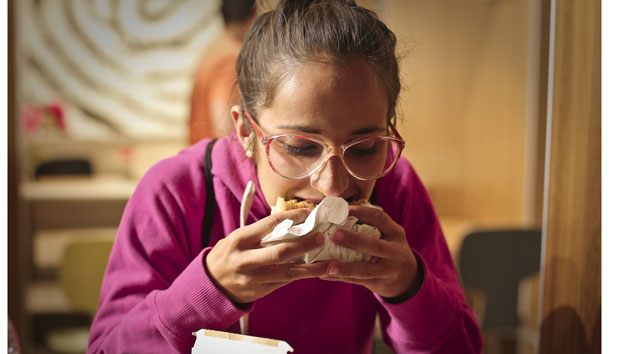
Shutterstock/Ollyy
Junk food companies are spending a disproportionately high percentage of their marketing budgets on ads for black-targeted television channels, according to a new study from the University of Connecticut’s Rudd Center for Food Policy and Obesity.
Spanish-language television is also a draw for junk food companies, although to a lesser degree overall.
The study defines black-targeted TV channels as those with a “high proportion of black individuals in the audience and/or whose ads were viewed disproportionately more by black teens relative to white teens.” The contrast is stunning: Black children see at least twice as many ads for sweets and sodas compared with white children.
Check out the results in the infographics below, and to see the full results of the study, click here.
